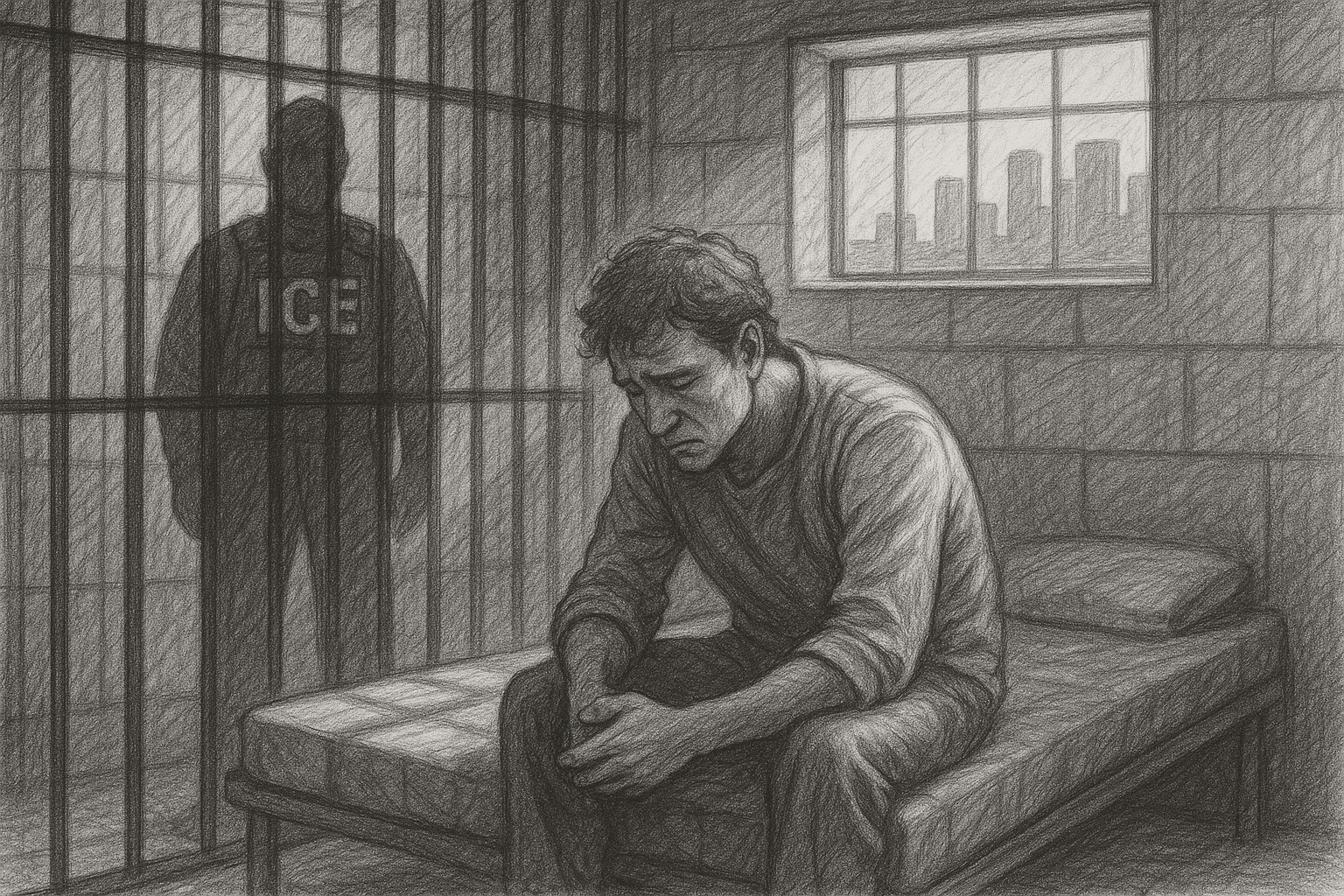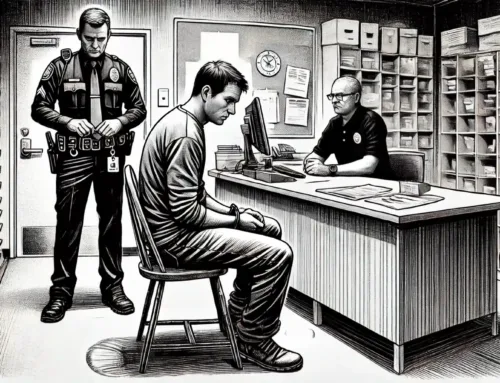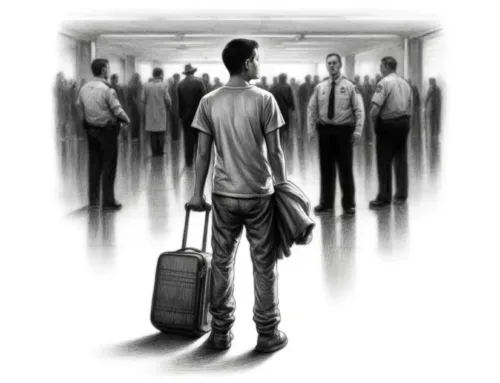What Happens When There’s an ICE Hold After an Arrest in Miami?
If a loved one is arrested in Miami, the first goal is often getting them released. But when the person is not a U.S. citizen—whether undocumented, a visa holder, or a lawful permanent resident—things can get complicated fast. Families are often told that ICE has placed a “hold” or immigration detainer. What does that mean, and what can be done?
We’ve helped many families navigate the fear and confusion surrounding ICE holds. Below, we explain what an ICE hold is, how it impacts a criminal case, and the steps we can take to protect immigration status and freedom.
What Is an ICE Hold (Immigration Detainer)?
An immigration detainer is a request from Immigration and Customs Enforcement (ICE) asking a local jail—such as TGK (Turner Guilford Knight Correctional Center) in Miami-Dade County—to keep someone in custody for up to 48 hours beyond their normal release time so ICE can take custody. This can occur even when criminal charges are dropped or a bond is posted. An ICE hold is a civil immigration matter, not a criminal charge, but it can carry major consequences.
How an ICE Hold Affects a Criminal Case
Bond might not lead to release. Even if bond is set and posted—or charges are dismissed—the jail may still hold the person for ICE pickup rather than releasing them.
Risk of transfer to ICE custody. Once ICE picks up the individual, they are taken to a federal immigration detention facility (for example, Krome in Miami) and may face removal proceedings in immigration court.
Criminal charges can trigger removal. Even relatively minor charges—such as certain drug offenses, DUI, theft, or domestic violence—can create immigration problems and, in some cases, trigger inadmissibility or deportability, including for green card holders. Coordinating the criminal defense with immigration strategy is critical.
Can ICE Take Someone Without a Warrant?
An ICE detainer is not a judicial warrant; it is a request not signed by a judge. Many jurisdictions decline to hold people on detainers without a judicial warrant. Miami-Dade County, however, generally cooperates with ICE and honors detainers, which means the person will typically be held until ICE arrives—even after posting bond or having charges dismissed.
What Are Your Legal Options if There’s an ICE Hold in Miami?
1. Fight the criminal case aggressively. Reducing or dismissing charges can improve immigration outcomes. We work to craft immigration-safe pleas or pursue diversion programs where appropriate.
2. Coordinate with immigration counsel. We team with experienced immigration attorneys to seek bond in immigration court, pursue relief such as asylum or cancellation of removal when available, and plan the overall defense so decisions in one court do not harm the case in another.
3. Challenge the ICE hold when possible. In certain cases, we may challenge detainers based on misidentification, unlawful detention beyond the 48-hour window, or lack of probable cause. These are complex constitutional issues, but in the right circumstances they can result in release.
What To Do Right Now if a Loved One Is in Jail With an ICE Hold
Gather the person’s full legal name and date of birth, confirm where they are being held (often TGK in Miami-Dade), and contact a criminal defense attorney immediately—preferably one with experience handling ICE holds. In some situations, it can be strategic to consult counsel before posting bond so that we can coordinate a plan to minimize the risk of immediate ICE transfer.
Frequently Asked Questions About ICE Holds in Miami
How long does ICE have to pick someone up after a detainer? ICE generally has 48 hours (excluding weekends and holidays) after the person’s criminal case is resolved or bond is posted. If ICE does not arrive within that time, the jail should release the person, though practices can vary.
Can someone be deported just for being arrested? Not for the arrest alone, but an arrest can trigger ICE involvement—especially when there are prior immigration issues or certain criminal convictions.
Can you fight an ICE hold? Sometimes. Viable options depend on status, the criminal allegations, and the legal basis for the detainer. A case-specific assessment is essential.
Why You Need a Criminal Defense Attorney Who Understands Immigration Consequences
Criminal charges and immigration status are tightly connected. A poorly structured plea or missed opportunity in state court can lead to detention and removal—even for long-time residents with families in Miami. We look at the entire picture: your family, your status, and your future.
Arrested in Miami With an ICE Hold? Let’s Talk.
If your loved one is in custody in Miami-Dade County and facing an ICE hold, do not navigate this alone. We can review the case, advise you on next steps, and coordinate with trusted immigration counsel when needed.
CALL US for a FREE CONFIDENTIAL CONSULTATION at (305) 538-4545, or take a moment to fill out our secure intake form. The sooner you involve experienced counsel, the better your chances of protecting both the criminal case and immigration status. The additional information you provide will greatly assist us in responding to your inquiry.*
THERE ARE THOUSANDS OF LAW FIRMS AND ATTORNEYS IN SOUTH FLORIDA. ALWAYS INVESTIGATE A LAWYER’S QUALIFICATIONS AND EXPERIENCE BEFORE MAKING A DECISION ON HIRING A CRIMINAL DEFENSE ATTORNEY FOR YOUR MIAMI-DADE COUNTY CASE
*Due to the large number of people who contact our law office requesting our assistance in cases involving immigration detainers, it is strongly suggested that you provide specific details regarding your case by filling out our confidential and secure intake form. The additional details you provide will greatly assist us in responding to your inquiry promptly and appropriately.
ALWAYS INVESTIGATE A CRIMINAL DEFENSE ATTORNEY’S QUALIFICATIONS AND EXPERIENCE BEFORE MAKING A DECISION ON HIRING A LAWYER FOR YOUR MIAMI-DADE COUNTY CASE







